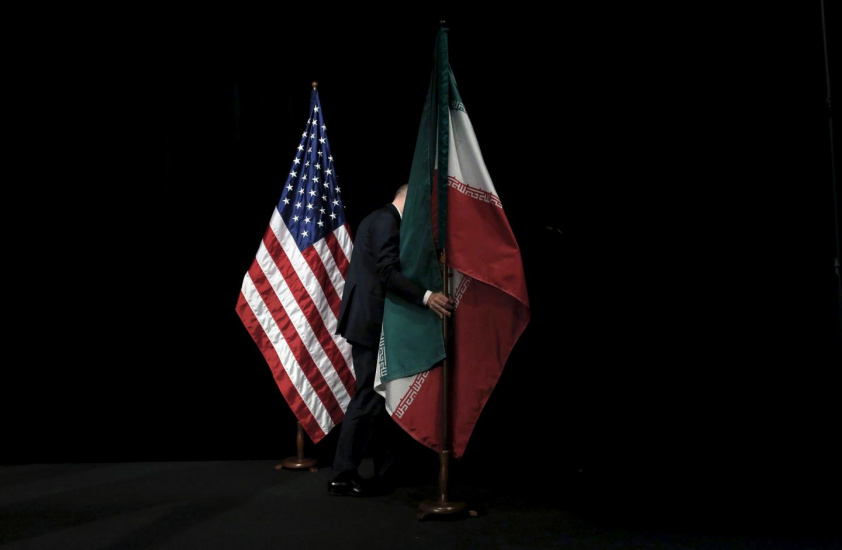The Growing Costs of American Bellicosity Toward Iran

Not long ago, US apologists for Trump's confrontational Iran policy were showering it with praise as a "working" and or "successful" policy that incurred massive costs on Iran without any damage to US interests. But, now with the specter of war looming on the horizon, resulting in huge costs to US taxpayers by mobilizing the US military against Iran, it is increasingly obvious that US is far from a winner in the present hostilities with Iran and is apt to be a net loser in the long run.
In fact, even at the current "pre-war" stage, which may linger for some time and thus perpetuate an uneasy "neither war, nor peace" quagmire, it is possible to tabulate the growing costs of US bellicosity, which undercut Trump's claim of prioritizing "America first." The following is a brief compendium of list of US costs of its unreconstructed confrontational policy:
(a) Cancellation of multi-billion dollar Iran deal with Boeing for the sale of commercial airplanes to Iran;
(b) Loss of other potential deals with Iran which could have resulted in a substantial expansion of US-Iran bilateral economic relations in the post-nuclear deal milieu;
(c) A transatlantic rift over Iran and the associated damage to the economic interests of US's allies in Europe and Asia, who have lost tens of billions of dollars of Iran contracts as a direct result of new US sanctions and;
(d) Undetermined billions of dollars of additional expense for the US military's expanded role in "Iran deterrence" reflected in the recent Pentagon decision to increase the US military presence in Persian Gulf in response to the perceived Iran threat;
(e) Serious damage to US credibility and global image due to US's unilateral exit from the UN-backed Iran deal;
(f) Destabilization of the oil hub of Persian Gulf as a result of Trump administration's dialing up the hostile Iran policy;
(g) Serious potential damage to US's own economy and the world economy in the event of skyrocketing oil prices in case of a dramatic escalation of tensions with Iran;
(h) Distraction from war on terror and the ability of ISIS and other terrorists to take advantage of the growing US-Iran tension to further their destructive cause in the region;
(I) Significant potential damage to Trump's own bid for re-election, particularly if the present pattern of growing tensions between US and Iran continues unabated. Iran issue is already a domestic political issue and cited by some Democratic Party contenders, who have distanced themselves from Trump's confrontational and provocative approach vis-à-vis Iran, and who are apt to benefit from the domestic and international backlashes against that approach;
(j) The entanglement of the Trump administration with Iran and its inability to focus on other aspects of its Middle East policy, resulting in a growing impression of a failed Middle East policy on the part of this administration;
(K) collateral damage on the Russia and China containment policy of the US, which has obsessively focused on Iran by succumbing to an Iran threat 'inflation' that bears little or no connection to reality;
(L) Potential damage to US Dollar as the Iran crisis may spawn new global efforts to find alternatives to dollar-based transactions.
Needless to say, the above-mentioned costs can grow exponentially if the current tensions boil into an open warfare, in which case it is a sure bet that body bags of US servicemen will be forthcoming to US, not to mention the Iranian strike capability that could target US naval and other assets in the region. As President Rouhani has warned, a war with Iran would be "the mother of all wars" and no one in the region would be immune. This means, finally, that the indirect costs to US allies such as Israel and Saudi Arabia should also be included in a fact sheet on the costs of US bellicosity toward Iran. In turn, a wise and prudent US policy would be to seek to minimize these rising costs by revising its present hostile approach toward Iran which has obviated diplomacy. In a word, US government for the sake of its own interests should revise its Iran policy that is dangerous for world peace and contrary to its own national interests as well as the specific interests of the incumbent President Trump, who claims he does not want war with Iran and, yet, is paving the way to one with his ill-advised Iran approach under the rubric of "maximum pressure." Thanks to Iran's steadfast resistance, Trump is gradually waking to the reality that Iran is not a trivial state to squeeze so much without expecting stern responses, that in reality his Iran policy has stemmed from a basic misperception of Iran, with potential disastrous, yet predictable, results.

